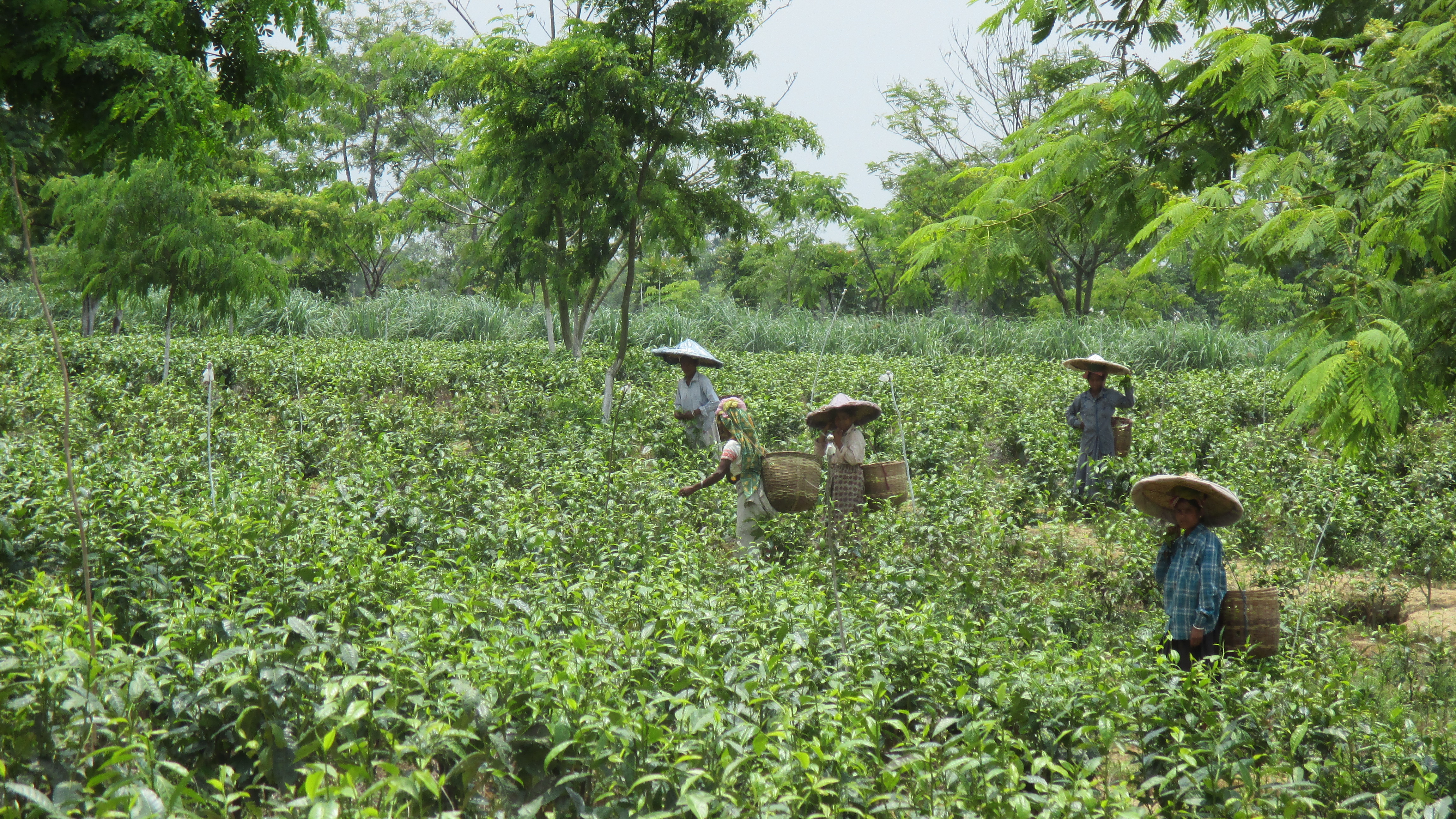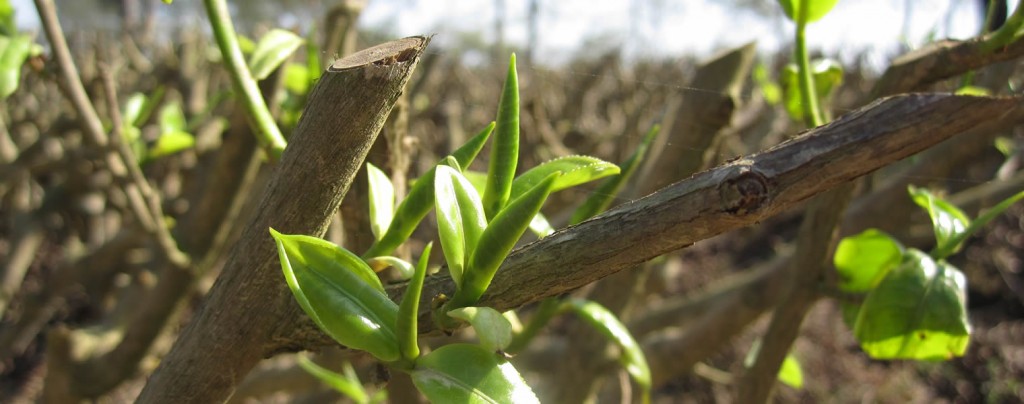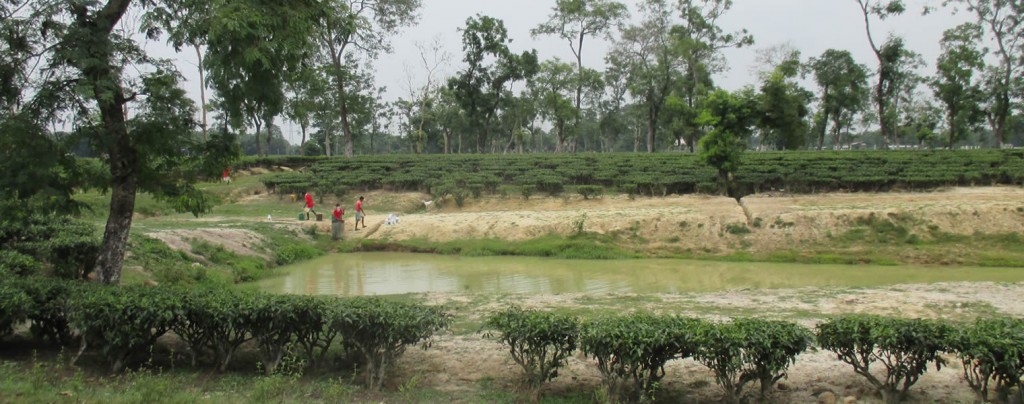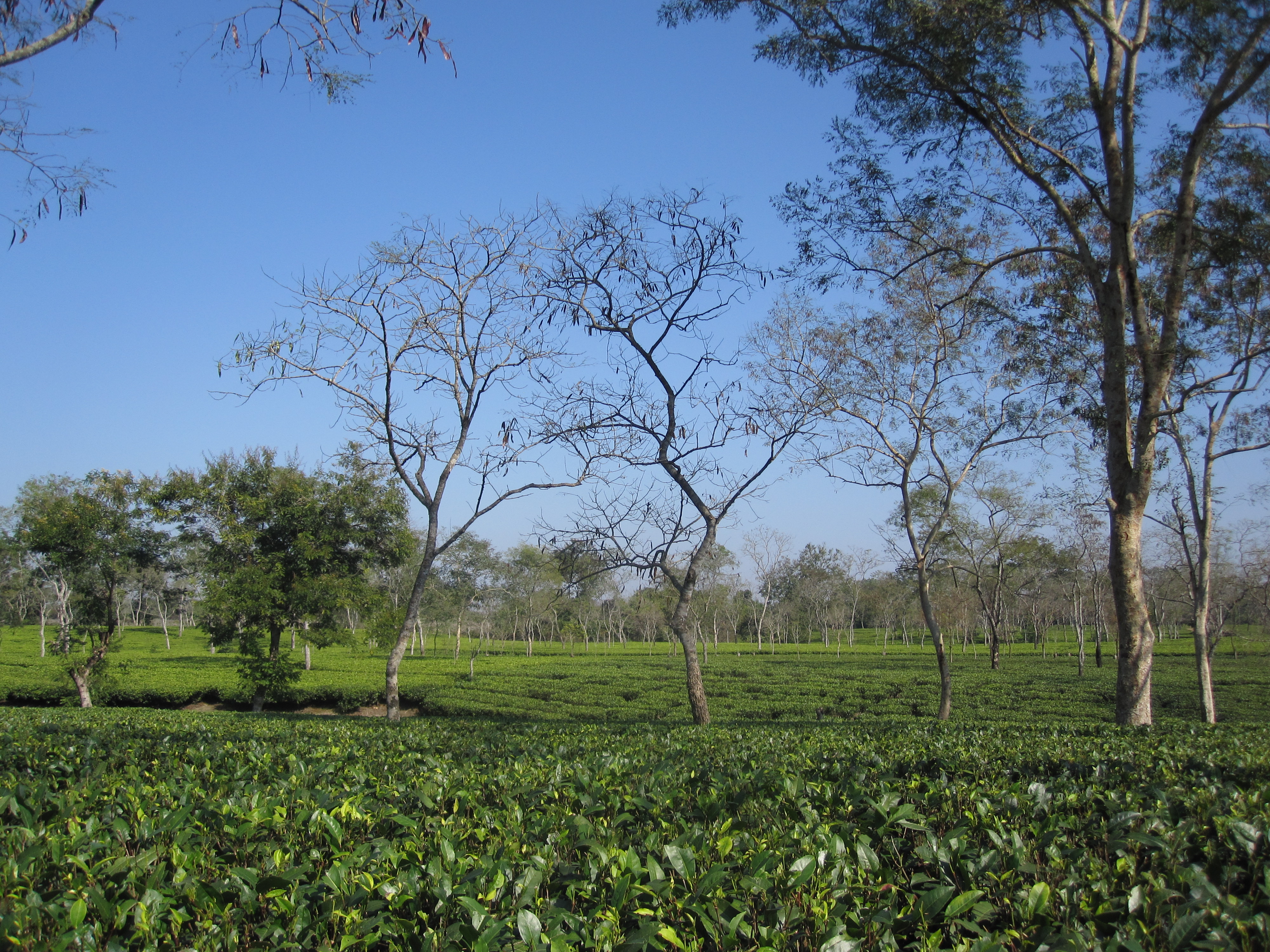Hartley News Online Your alumni and supporter magazine
Sustainable tea landscapes in the face of climate change
Globally, our agricultural landscapes and food systems are suffering, as a result of competition for land and water, increasing populations, and climate change. There is an urgent need to combat these issues, to ensure food security, preserve environmental resources and promote sustainable livelihoods. International trade in tea is one of the largest in value among tropical and subtropical crops, particularly for Assam in northeast India. However, minimal research has investigated the value of these landscapes for livelihood security or the potential impact of climate change on tea production these regions.
In the 1820s, most tea imports to Britain were purchased from China, by the East India Company, using money raised by illegal trading of Indian-grown opium. Tea from China monopolised global trade, and in an attempt to break this monopoly, the East India Company began large-scale production of tea in Assam, offering free land to European settlers who agreed to cultivate the crops for export. Tea consumption spread following a campaign by the Tea Board, and from 1840 the Assam Tea Company began commercial production in the region.
Today, Geographer Dr Ellie Biggs, alongside her international team, is exploring the role of tea in sustaining livelihoods in Assam. “Assam is a state with great economic importance in the tea trade and livelihoods are highly dependent upon tea production. Changes in regional climate are a potential threat to the production of Assamese tea, both in terms of quality and quantity,” explains Ellie. “Funded by the UK-India Education and Research Initiative (UKIERI-DST), our research will investigate livelihoods, climate change and agricultural practice to better understand the value of tea within the landscape and identify ‘safe spaces’ for tea plantations in Assam,” she adds.
Growing tea
Much of northeast India is perfectly suited to tea crop cultivation. The climate is hot, with humid summers, severe monsoons, mild winters, and high soil fertility. India is the world’s largest and longest established producer of black tea, and Assam is one of most globally important tea-producing regions of the world, manufacturing high-end graded tea, which contributes to around 17 per cent of world tea production.
Dr Niladri Gupta, the India-based principle investigator for this project working at the Tocklai Tea Research Institute, comments: “Around two million labourers in Assam are dependent upon high tea yields. Harvesting of tea crops requires a large labour force, primarily providing employment for tea pluckers (traditionally women) and pruners (traditionally men). In northeast India, changes in tea production practices are challenging livelihoods, due to closure of tea estates and fewer employment opportunities. Here, financial crises have impacted the plantation economy and community due to over-dependence on tea plantations. Our research will help to ascertain to what extent such socio-environmental issues are evident in Assam.”
Climate change
Tea crops in Assam are at a high risk from climatic factors, ranging from the annual flooding of the Brahmaputra River, to seasonal droughts, to the increase in annual minimum temperatures, and variations in annual rainfall. Sukanya Saikia, Research Fellow at the Tocklai Tea Research Institute states: “Environmental factors have a significant effect on tea crops with yields in north-east India expected to significantly decline by 2050. Poverty is a major social challenge in Assam with the majority of the population reliant on subsistence farming. Changes in the tea industry may have a severe adverse impact on financial security.”
Climate-smart landscapes
“To combat these issues, our research is focusing on moving tea crops and other food systems towards ‘safe spaces’,” says Dr John Duncan, postdoctoral research fellow at Southampton. “Such spaces exist where food security and livelihoods are sustainable and the system is resilient to climate change. These practices aim to ensure sustainable increases in crop productivity and income whilst enhancing resilience to environmental change, and mitigate agriculture’s contribution to climate change.”
‘Climate-smart agriculture’ is central to development plans of several high-level international bodies (e.g. UN Food and Agriculture Organisation, UN International Fund for Agricultural Development of the United Nations, World Bank) and was touted as the sustainable and food secure pathway in recent discussions at Rio+20 UN Conference on Sustainable Development, and at the first and second Global Conferences on Agriculture, Food Security and Climate Change.
Outputs
The team presented the initial outcomes of their research at the World Water Congress meeting in Edinburgh in May, and ran a breakout session at the Ethical Trade Partnership meeting in June. They are also hoping to present findings of the project at the American Geophysical Union (AGU) annual meeting in San Francisco, December 2015.
Increasing awareness of the research we are undertaking is essential for widening the interest in Assam’s tea future. Not only will we disseminate research findings to the academic community, we will also produce policy briefs for tea stakeholders and hold an interactive fair to disseminate information back to communities who have participated in our research, many of whom are illiterate
says Ellie.
“Our research into understanding the tea landscapes of Assam contributes valuable information to the producers of the tea, as well as important information to promote more sustainable long-term practice and climate compatible solutions for tea production.”
To find out more you can visit the website: www.teaclimate.com




